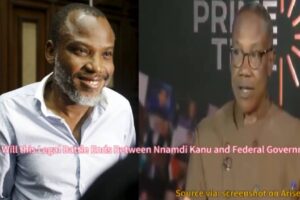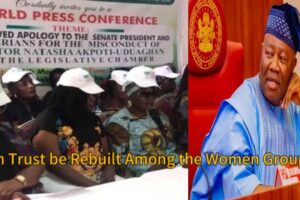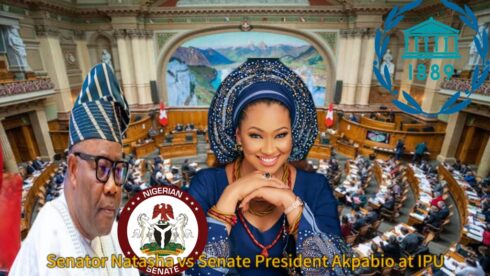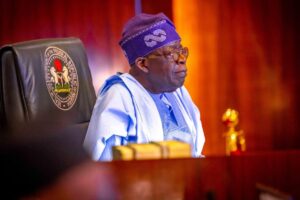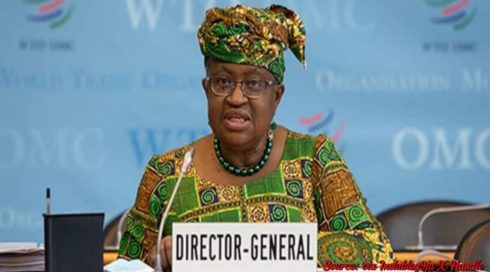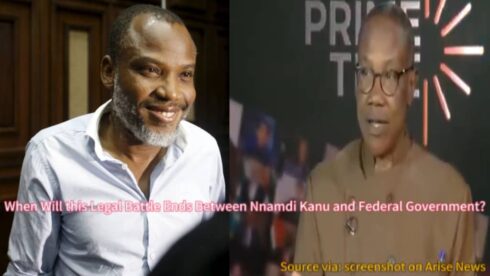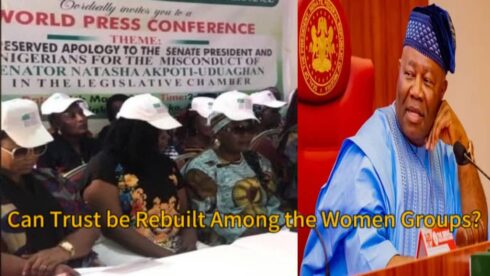The World Trade Organization (WTO) has formally confirmed that Dr. Ngozi Okonjo-Iweala is the only remaining candidate for the position of director-general, placing her on the verge of making history as the organization’s first African and first female leader. Her path to this role opened up after her final competitor withdrew, signaling widespread support from WTO members for her candidacy. This development has resonated globally, highlighting the symbolic importance of her potential appointment to an institution known for shaping international trade policies.
If officially appointed, Dr. Ngozi Okonjo-Iweala would bring a fresh and inclusive vision to the WTO at a time when the global trade body is under intense pressure to reform. Her candidacy represents a significant milestone for diversity in leadership within international organizations, as her economic expertise and reformist approach are expected to guide the WTO in tackling complex challenges like protectionism, digital trade policies, and trade equality among nations.
Dr. Ngozi Okonjo-Iweala’s Extensive Background in Global Economic Policy
Dr. Ngozi Okonjo-Iweala, a seasoned economist, has built an impressive career spanning over three decades, with notable roles in the World Bank, where she served as Managing Director, and in Nigeria, where she held the position of finance minister twice. Her work has focused on economic reform, poverty alleviation, and innovative financial solutions for developing economies. Dr. Ngozi Okonjo-Iweala’s background provides her with the insight and experience needed to navigate the WTO through challenging economic times.
Her experience at the World Bank and her leadership in Nigerian economic reforms have earned her an exceptional reputation as a global economic leader. She has been recognized for championing financial transparency, combating corruption, and driving sustainable development in Africa. Dr. Ngozi Okonjo-Iweala’s unique perspective as both an African leader and a highly accomplished economist positions her well to influence WTO policies that address economic disparity and promote sustainable trade practices.
Challenges Awaiting Dr. Ngozi Okonjo-Iweala at the Helm of the WTO
Dr. Okonjo-Iweala’s leadership at the WTO will not come without significant challenges. The organization currently faces heightened global trade tensions, stemming from recent trade wars, protectionist policies, and disruptions due to the COVID-19 pandemic. The WTO’s dispute resolution mechanism, central to maintaining fair trade practices, has been under scrutiny, with some member countries calling for major reforms to ensure its relevance and efficacy in a rapidly changing trade environment.
One of Dr. Ngozi Okonjo-Iweala’s key priorities will be to address these concerns, particularly through reforming the dispute resolution process to make it more responsive and fair. She will also need to work closely with member nations to rebuild trust in multilateral trade agreements, which have been strained by regional trade blocs and individual countries’ trade interests. Observers believe that her reform-minded approach could revitalize the WTO’s role in facilitating equitable trade practices and supporting economic recovery post-pandemic.
Global Endorsements Signal Support for Dr. Ngozi Okonjo-Iweala
Dr. Ngozi Okonjo-Iweala’s candidacy has received broad international support, with endorsements from influential organizations and countries worldwide. The African Union, the European Union, and several nations from the Americas, Asia, and Oceania have expressed strong backing for her leadership, acknowledging her capability to bring a new perspective to the WTO’s trade governance. Her nomination marks a historic step in promoting gender equality and representation from developing nations in global organizations.
This wave of endorsements reflects confidence in Dr. Okonjo-Iweala’s ability to reform the WTO in ways that foster inclusive growth and address trade imbalances. Her global support signifies an expectation that she will bring a collaborative approach, aiming to bridge divides between developed and developing nations within the WTO framework. Her leadership could help reshape the organization to better serve the interests of a diverse membership while fostering trust and cooperation among trade partners.
Focus on Advancing Trade Interests of Developing Countries
One of Dr. Okonjo-Iweala’s core goals is anticipated to be advocating for the trade interests of developing nations. Many emerging economies struggle to access global markets on fair terms due to issues related to tariffs, intellectual property, and agricultural trade policies. Dr. Okonjo-Iweala’s unique perspective, as a leader from a developing country, could help her champion policies that promote more balanced trade relationships and create pathways for economic growth in underrepresented regions.
Her commitment to equity in trade could translate into policies that provide better support for developing countries in sectors such as technology, agriculture, and manufacturing. With her leadership, these countries hope to see the WTO adopt measures that encourage job creation, poverty reduction, and fair competition. Her role could enable a new era where the WTO plays a more active part in creating opportunities for sustainable economic growth in nations that have historically faced trade disadvantages.
The Future of the WTO Under Dr. Okonjo-Iweala’s Visionary Leadership
The potential appointment of Dr. Okonjo-Iweala could usher in a transformative era for the WTO, as she is widely expected to push for strategic reforms that modernize the organization. Her leadership could focus on pressing issues like digital trade, climate-related trade policies, and labor standards. By modernizing the WTO’s approach, she may foster an international trade system that is both resilient and adaptable to the 21st-century economy, especially as digital trade and e-commerce continue to grow.
Analysts believe Dr. Okonjo-Iweala’s leadership could bring greater transparency, strengthen multilateral agreements, and drive global cooperation on digitalization, environmental responsibility, and fair labor practices. Her emphasis on inclusivity and reform aligns with a vision of a WTO that not only upholds free trade but also addresses the broader challenges of inequality, sustainability, and equitable development. Her role could define the WTO’s next chapter, reinforcing its relevance in an interconnected, digital, and diverse global economy.
Table of Contents
Discover more from OGM News NG
Subscribe to get the latest posts sent to your email.



